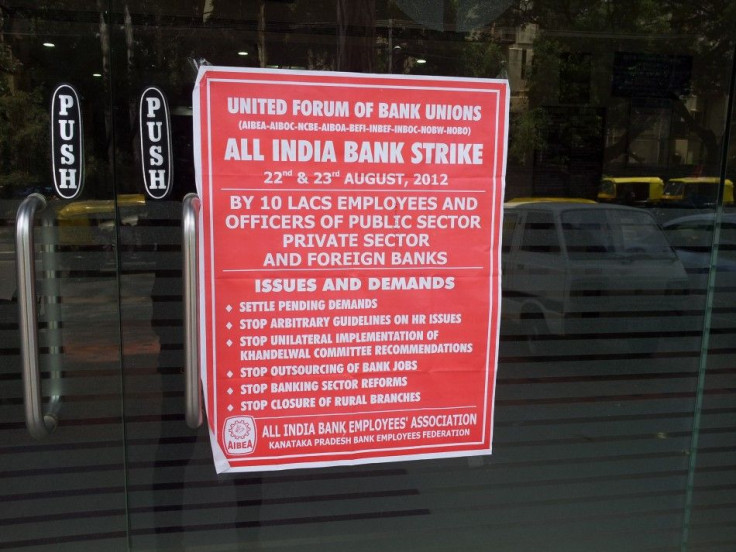Strike Cripples Operations Of Public Sector Banks In India

Public sector banks in India were closed for the second day Thursday as thousands of employees boycotted work and participated in the two-day strike called by the United Forum of Bank Employees Union.
Normal banking operations like cash transactions, fund transfers and forex dealings were affected by the strike while online banking transactions were not affected. Automated teller machines (ATM) kiosks witnessed a heavy rush.
"The strike is total success all over the country. Banking services have been affected," All India Bank Employees' Association (AIBEA) general secretary CH Venkatachalam was quoted as saying by PTI.
The union claimed that around one million bank employees and officers had participated in the strike.
The employees were protesting against the Central Government's move to introduce reforms in the banking sector with the proposed Banking Sector Laws Amendment Bill. The employees accused the government of closing down rural branches and outsourcing non-core banking operations to the private sector companies.
The proposed amendments to banking laws include lifting the ceiling on the voting rights of the share holders to 26 percent from the current 10 percent, and this will give voting rights to the foreign shareholders. The unions allege that this move would enable the foreign companies to take control of the Indian banks and would lead to job losses.
The proposed reforms would exclude bank mergers from the ambit of the Competition Commission of India and allow the banks to participate in forward trading which the unions object, according to the Hindu newspaper.
The proposals that are being opposed by the banking unions include amendment to the Banking Regulation Act, 1949, the Banking Companies (Acquisition and Transfer of Undertakings) Act, 1970 and the Banking Companies (Acquisition and Transfer of Undertakings) Act, 1980.
There is also a host of pending demands from the employees such as pension and housing loan revisions, guidelines for career progressions and other human resource-related issues which, the unions claim, need imperative attention.
Employees are also miffed by the government's move to implement the Khandelwal Committee's recommendations on transfer and promotion of employees.
© Copyright IBTimes 2024. All rights reserved.






















